Elon Musk takes over Twitter
The sharpest opinions on the debate from around the web

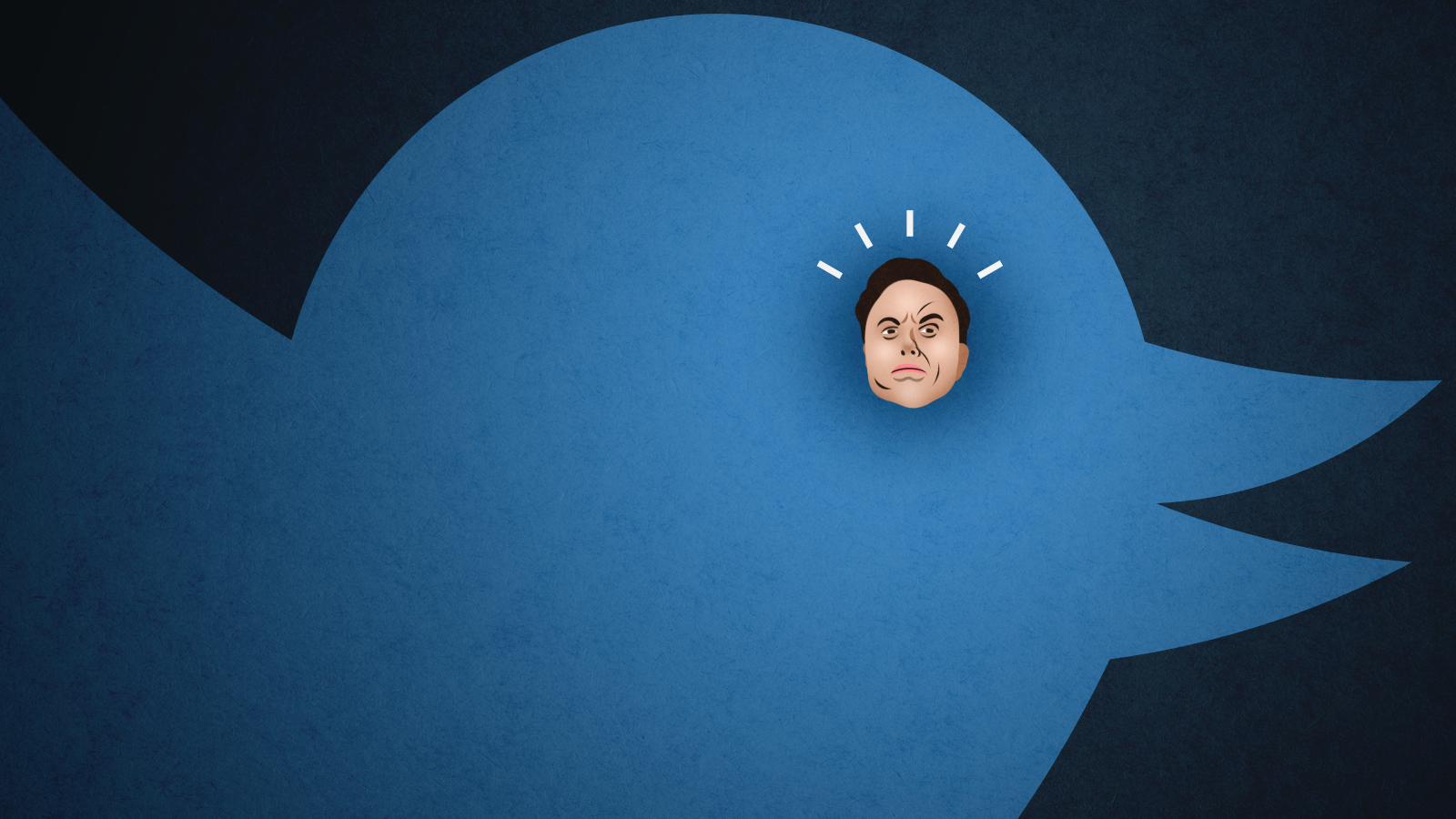
A free daily email with the biggest news stories of the day – and the best features from TheWeek.com
You are now subscribed
Your newsletter sign-up was successful
Elon Musk owns Twitter now. Months after he agreed to buy the social media site — and after an embarrassing lawsuit when he tried to back out of the deal — Musk took control of the company on Friday and immediately fired most of its senior management.
Other changes are coming, quickly. Musk and his new advisers "reportedly floated various trial-balloon ideas, including asking Twitter's power users and big accounts to pay for their blue-checkmark badges," Damon Beres and Charlie Warzel write at The Atlantic. And Musk's reputation as an advocate of free speech seems to have invited "a tide of slurs and racist memes" on Twitter over the weekend, Bloomberg reports. (That could invite a regulatory crackdown from the European Union, which limits such things.) But concerns about Musk's move range beyond misinformation and hate speech. "The world's richest man, worth more than the GDPs of many countries, is now in control of one of the world's most influential social networks," Seth Fiegerman writes at CNN. Can Musk make Twitter profitable, and can he do it while ensuring it remains a social media network that people want to use? Or is this just an out-of-control power trip?
Twitter is now a rich man's plaything
Elon Musk is rich and famous, which means he is "the exact type of person for whom Twitter is poison," Hamilton Nolan writes at The Guardian. The billionaire could let his works — PayPal, Tesla, SpaceX — speak for themselves but instead, he uses social media to reveal he's just another reply guy "easily seduced by the same sorts of ideas that grab the minds of Reddit-scrolling 13-year-old boys." But Musk isn't any different from Jeff Bezos who bought The Washington Post, or media barons like Rupert Murdoch and William Randolph Hearst, who created empires to bend public opinion to their will. "In truth, Musk probably bought Twitter for the same reason that sickeningly rich people throughout history have become press barons: to try to control the conversation."
The Week
Escape your echo chamber. Get the facts behind the news, plus analysis from multiple perspectives.

Sign up for The Week's Free Newsletters
From our morning news briefing to a weekly Good News Newsletter, get the best of The Week delivered directly to your inbox.
From our morning news briefing to a weekly Good News Newsletter, get the best of The Week delivered directly to your inbox.
Does Elon have too much power now?
There's a term for when oligarchs and big tech companies amass the power of nation-states: "Technopolarity." That's what Musk's purchase of Twitter signifies, Greg Sargent writes at The Washington Post: "The sovereignty that tech giants are carving out in international digital space is getting increasingly entangled in conflicts among sovereign nations." Musk's purchase of Twitter comes right after he threatened to pull the plug on Starlink internet service that Ukraine forces are using to repel Russian invaders from their territory, revealing his power to intervene in and upset international politics. His control over Twitter could have the same consequences. "One possibility is that Twitter becomes more hospitable to disinformation and online influence operations." Musk has done good things for humanity — his work at Tesla, making electric vehicles popular and desirable, is a genuine contribution to fighting climate change. So maybe good will come from his control over Twitter. "But it sure looks like we'll face seriously messy complications along the way."
Liberals are overreacting
"On the left, the reaction has been like something out of the Book of Revelation," The Wall Street Journal says in an editorial. But Musk faces genuine challenges in trying to make Twitter a healthy and profitable company. The deal saddles Twitter with $1 billion a year in debt interest payments — up from $50 million — which means Musk must figure out how to wring revenues from his new business. (Layoffs to cut costs have already started.) And there's another big decision: Whether to allow Donald Trump to reclaim his place on the platform, something that would be a "headache for Republicans" if the former president starts commandeering public attention again. But Musk would do well to start by making clear that unpopular opinions won't be "throttled" by the platform as misinformation. It's going to be a wild ride no matter what happens next. "Fixing Twitter might be Elon Musk's biggest challenge yet, and this is a guy who hopes to die on Mars."
Twitter won't become a free-for-all. Probably.
"Despite claiming to be a 'free speech absolutist', Musk has already conceded that some degree of content moderation is needed," Richard Waters writes for the Financial Times. So it's unlikely that the platform will suddenly run rampant with misinformation and hate speech — or at least, not more than usual. But Musk hasn't explained how Twitter could handle those issues better, and by firing most of the company's senior management "he seems doomed to repeat lessons Twitter has already spent many years learning." And he still has to figure out how to make Twitter into a profit-maker — the company has never been able to "break out of a relatively narrow business niche" aimed at information junkies. But the signs aren't great. After all, Musk overpaid for Twitter "in the midst of a tech stock downturn." Maybe he can turn to users to do content moderation, like Reddit, or perhaps companies that build their own services on Twitter could use the platform. It's clear in any case that Musk needs answers, and fast. "The reputation of the era's most successful entrepreneur is riding on the outcome."
A free daily email with the biggest news stories of the day – and the best features from TheWeek.com
Joel Mathis is a writer with 30 years of newspaper and online journalism experience. His work also regularly appears in National Geographic and The Kansas City Star. His awards include best online commentary at the Online News Association and (twice) at the City and Regional Magazine Association.
-
 The ‘ravenous’ demand for Cornish minerals
The ‘ravenous’ demand for Cornish mineralsUnder the Radar Growing need for critical minerals to power tech has intensified ‘appetite’ for lithium, which could be a ‘huge boon’ for local economy
-
 Why are election experts taking Trump’s midterm threats seriously?
Why are election experts taking Trump’s midterm threats seriously?IN THE SPOTLIGHT As the president muses about polling place deployments and a centralized electoral system aimed at one-party control, lawmakers are taking this administration at its word
-
 ‘Restaurateurs have become millionaires’
‘Restaurateurs have become millionaires’Instant Opinion Opinion, comment and editorials of the day
-
 Elon Musk’s starry mega-merger
Elon Musk’s starry mega-mergerTalking Point SpaceX founder is promising investors a rocket trip to the future – and a sprawling conglomerate to boot
-
 Will SpaceX, OpenAI and Anthropic make 2026 the year of mega tech listings?
Will SpaceX, OpenAI and Anthropic make 2026 the year of mega tech listings?In Depth SpaceX float may come as soon as this year, and would be the largest IPO in history
-
 Ryanair/SpaceX: could Musk really buy the airline?
Ryanair/SpaceX: could Musk really buy the airline?Talking Point Irish budget carrier has become embroiled in unlikely feud with the world’s wealthiest man
-
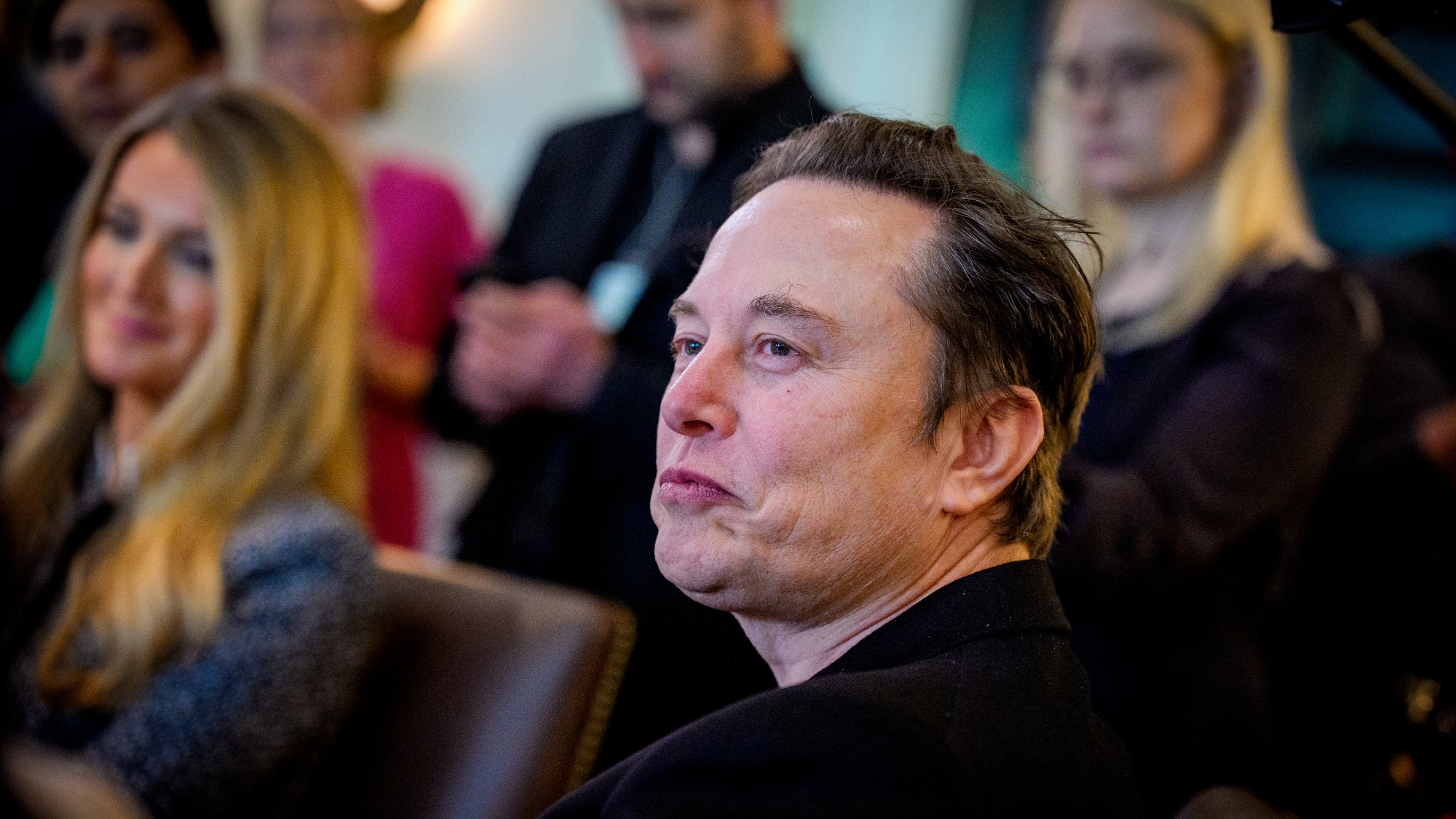 Musk wins $1 trillion Tesla pay package
Musk wins $1 trillion Tesla pay packageSpeed Read The package would expand his stake in the company to 25%
-
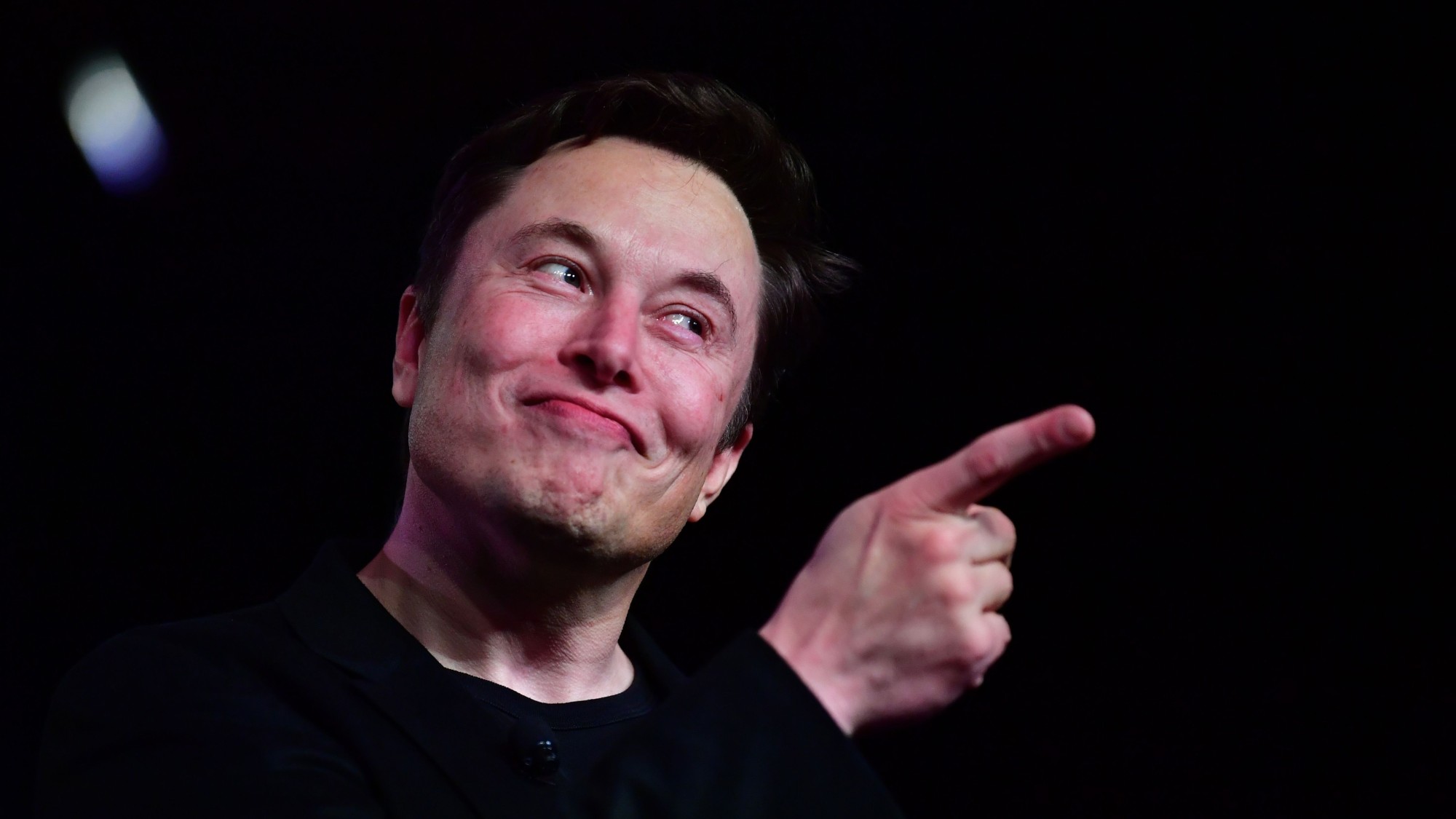 How Tesla can make Elon Musk the world’s first trillionaire
How Tesla can make Elon Musk the world’s first trillionaireIn The Spotlight The package agreed by the Tesla board outlines several key milestones over a 10-year period
-
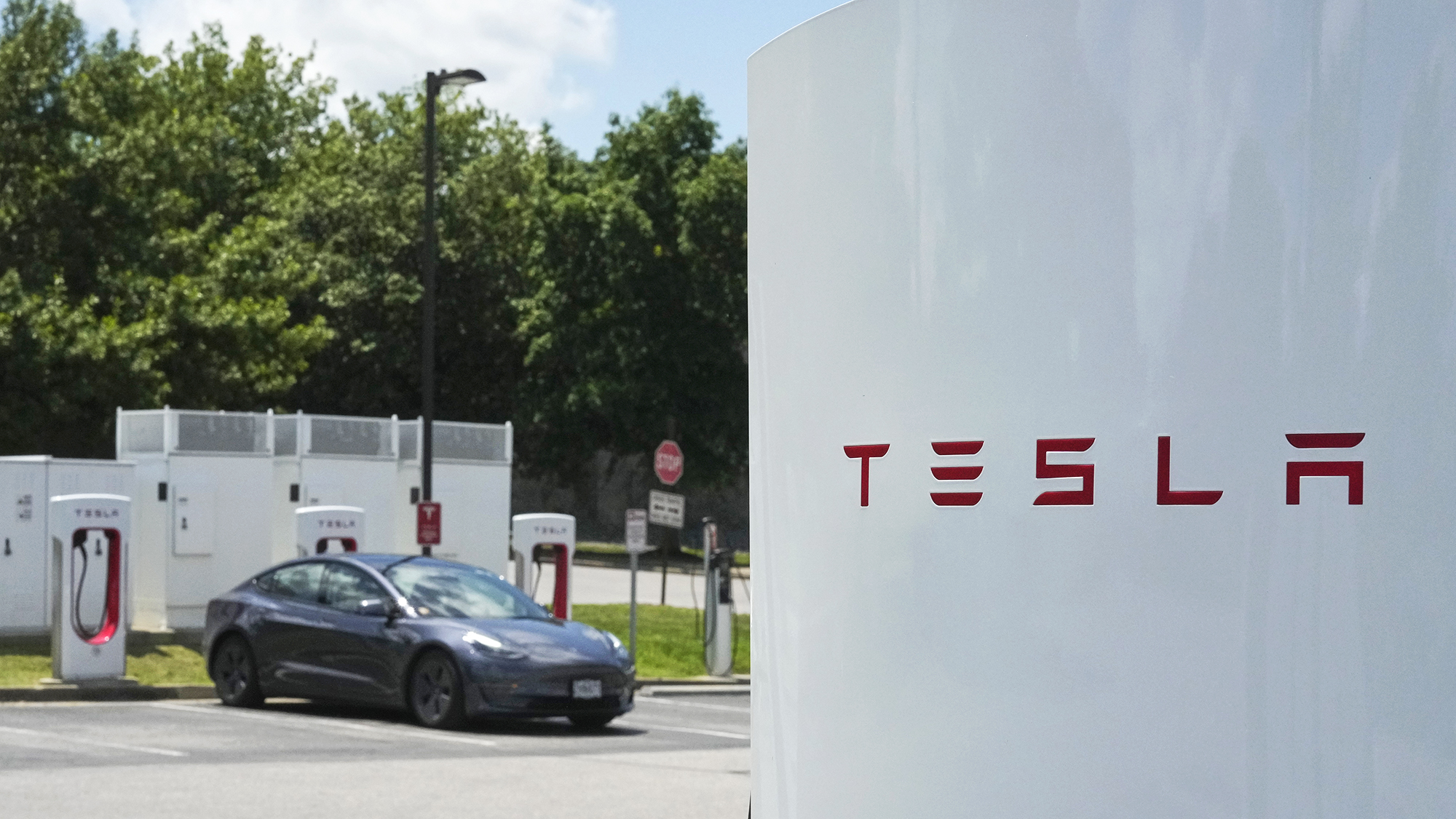 Tesla reports plummeting profits
Tesla reports plummeting profitsSpeed Read The company may soon face more problems with the expiration of federal electric vehicle tax credits
-
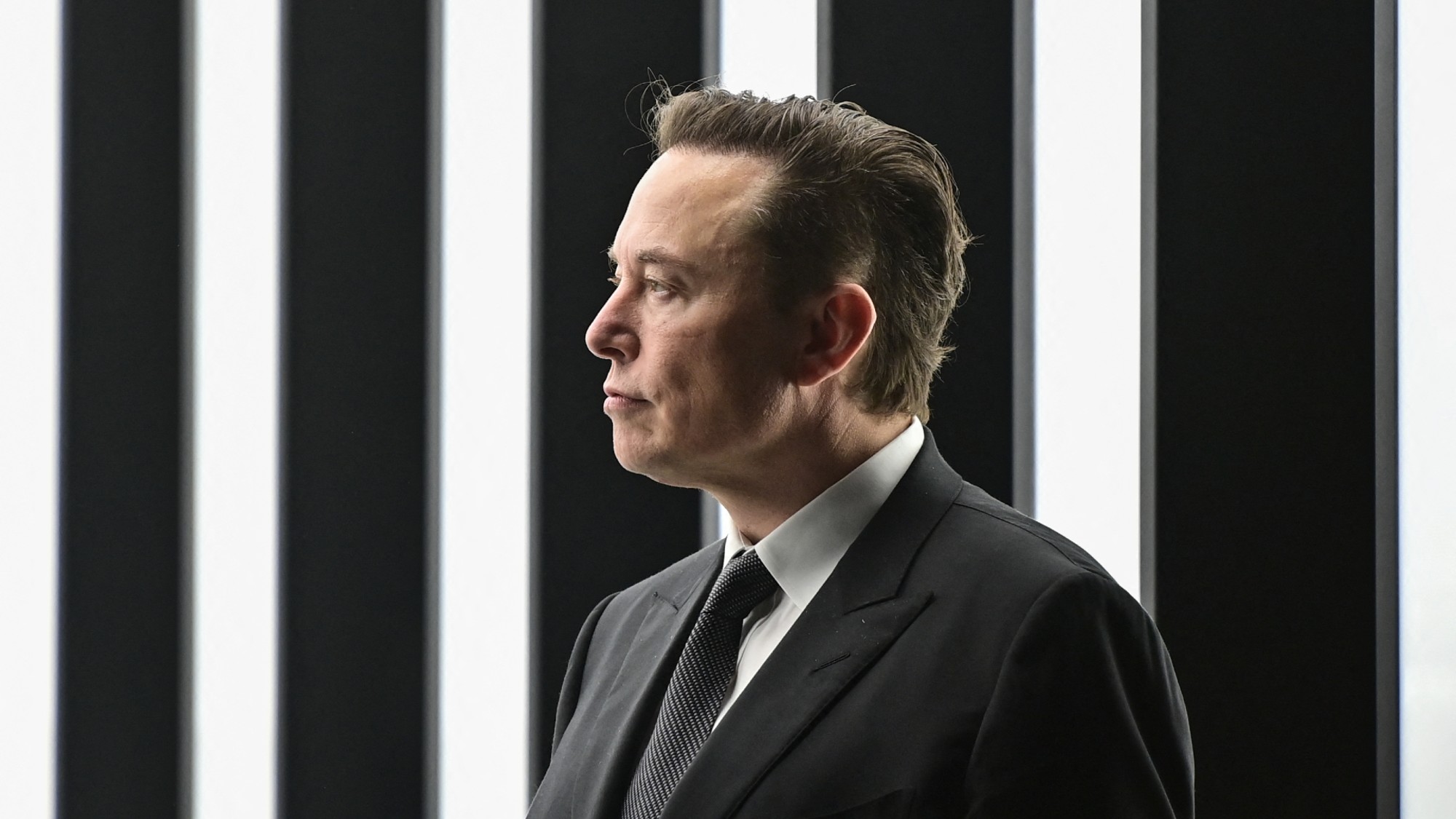 How could Tesla replace Elon Musk?
How could Tesla replace Elon Musk?Today's Big Question The company's CEO is its 'greatest asset and gravest risk'
-
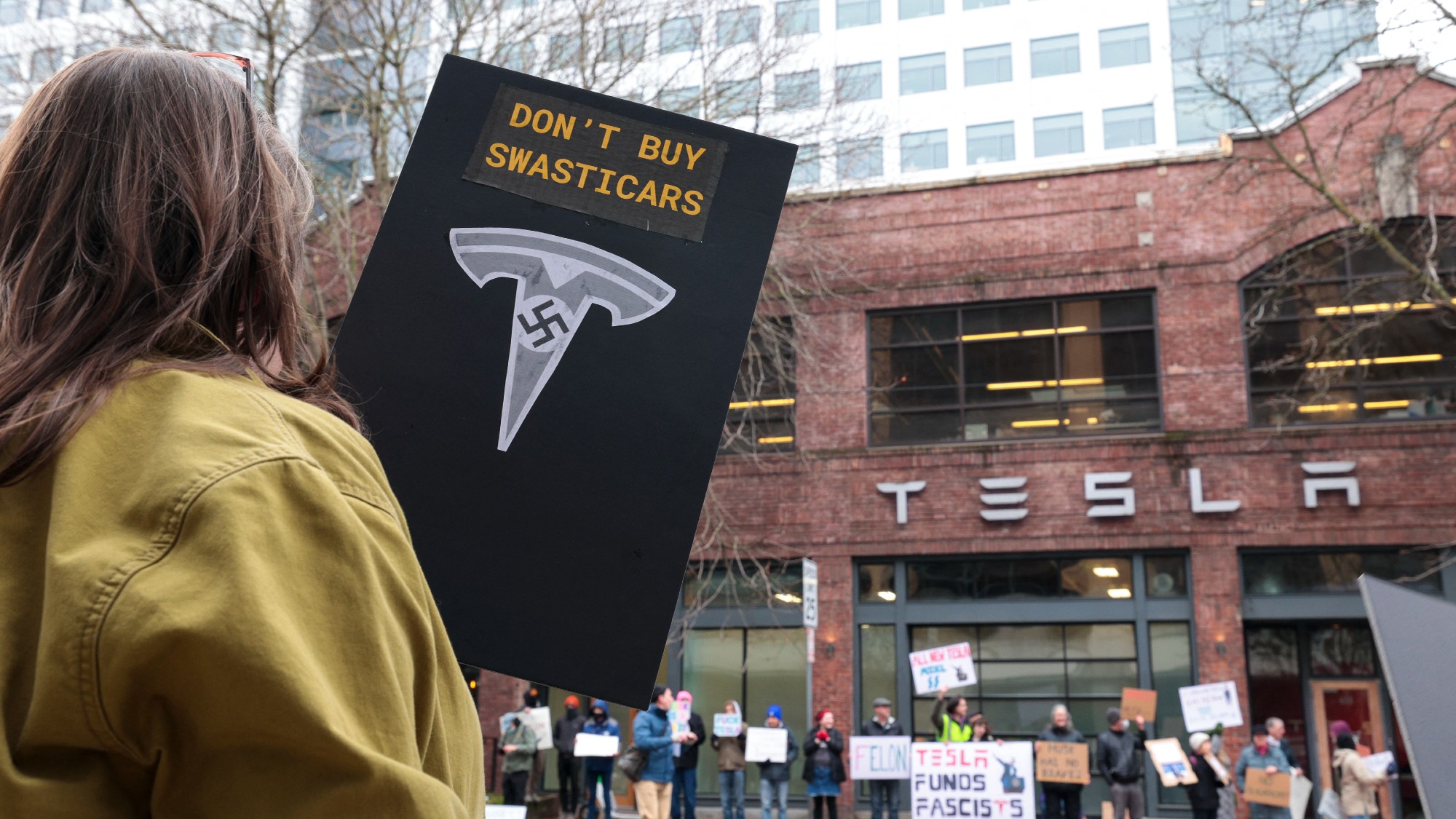 Elon Musk: has he made Tesla toxic?
Elon Musk: has he made Tesla toxic?Talking Point Musk's political antics have given him the 'reverse Midas touch' when it comes to his EV empire
